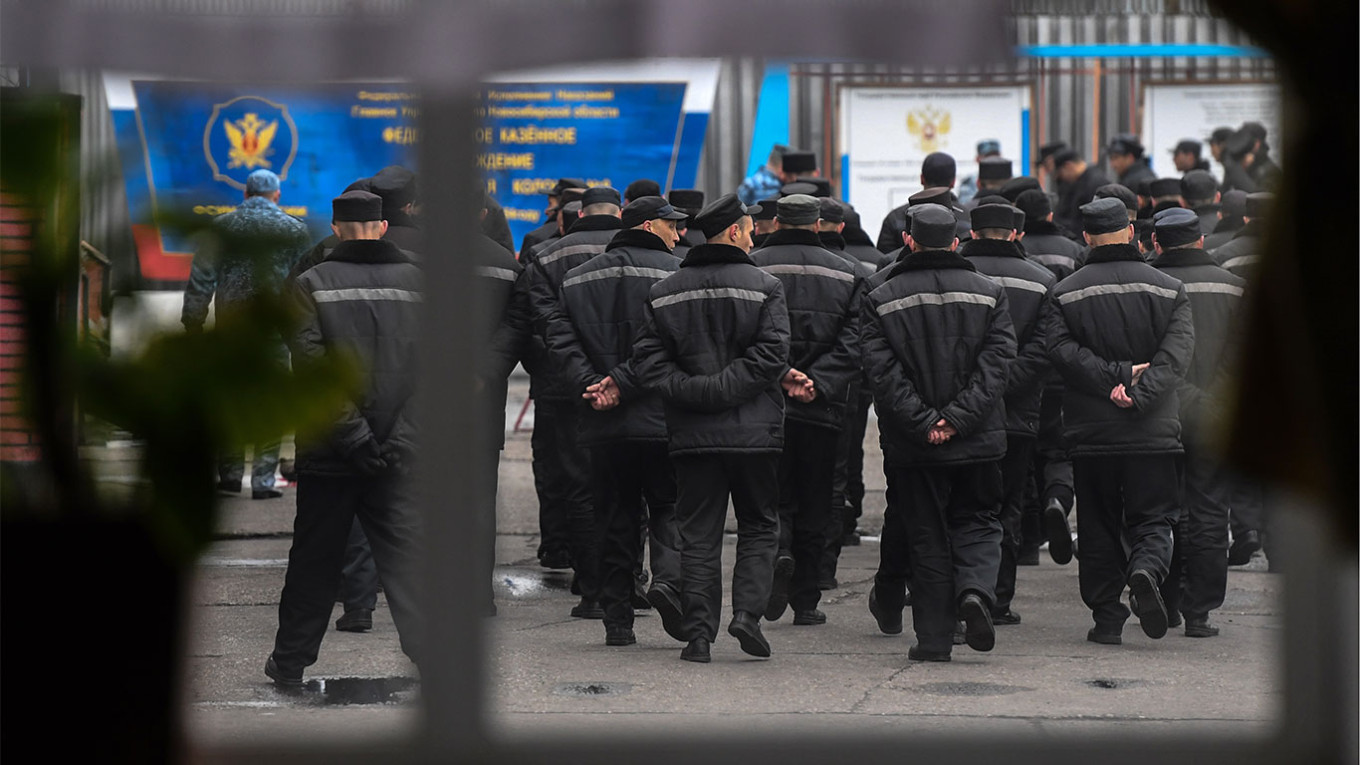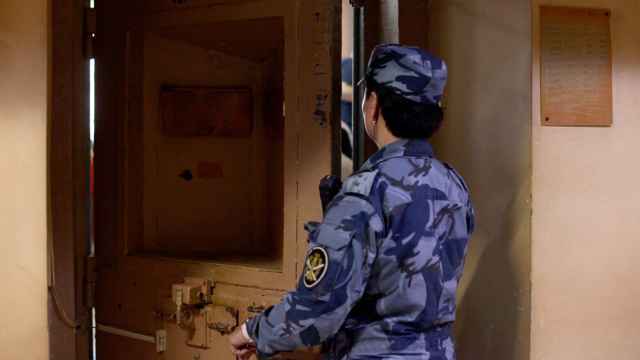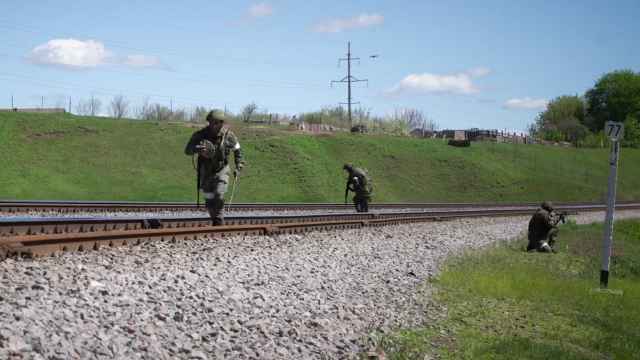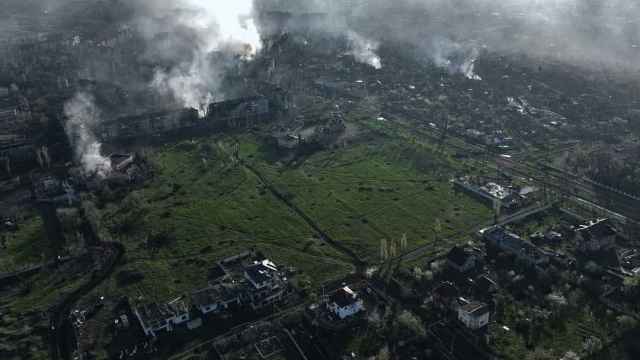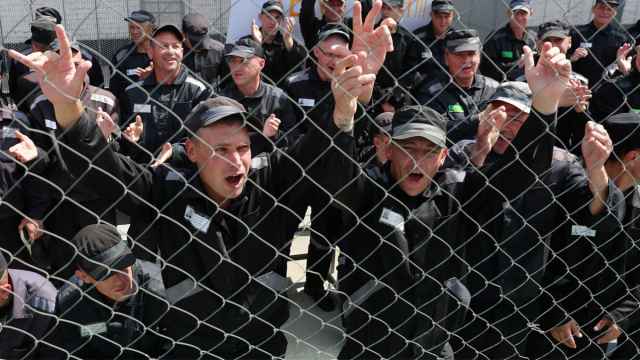Russia’s military has institutionalized the recruitment of convicts into its ranks as it seeks to shore up its numbers for the war in Ukraine.
Building upon a system pioneered by the Wagner mercenary group, the previously informal practice allows convicts a chance at redemption in exchange for risking their lives on the front lines — and for the government to avoid the expansion of unpopular civilian mobilization.
Today, prisoners are not just allowed but encouraged to serve as regular combatants, with the reward of a presidential pardon enticing many to enlist.
The first evidence of prisoners being recruited for the war effort can be traced to the fall of 2022, when this practice — carried out by private military companies that were never officially legalized — fell into a legal gray area.
By the spring of 2023, recruited prisoners were already a regular presence on the Russian side of the front. They proved to be a capable fighting force — at least according to the Wagner Group, which marketed itself as the leader of Russia’s offensive on the eastern Ukrainian city of Bakhmut.
The growing rift at that time between the Defense Ministry and Wagner leader Yevgeny Prigozhin appears to have provoked the government into taking over prison recruitment from Wagner, which halted such activities in February, and possibly co-opt Wagner penal units into the conventional military.
Military representatives started showing up in jails in April. In May, after Prigozhin’s viral speech blaming the military leadership for ammunition shortages, they became a common sight.
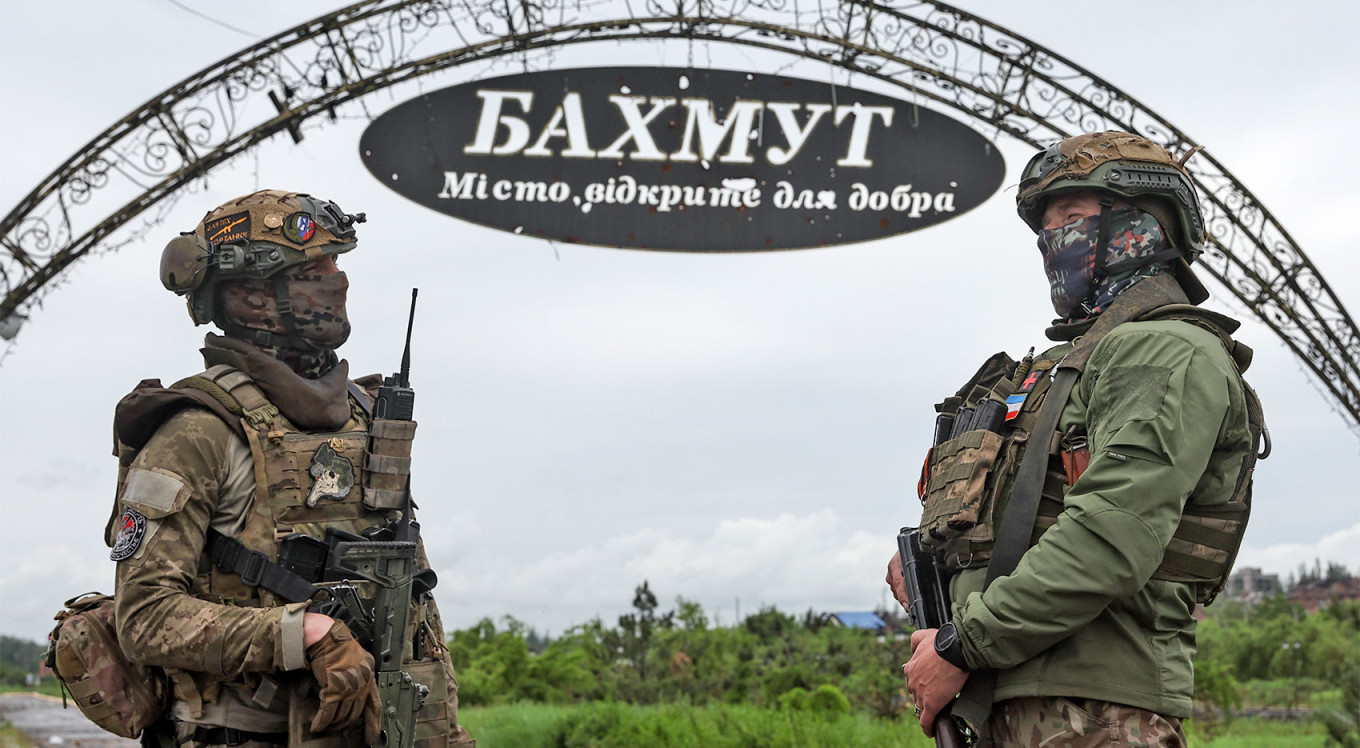
Nadezhda Nikolaevna, 79, from the Leningrad region town of Tikhvin, remembers a phone call she received from her late grandson Artyom Bunyatov, a prison inmate who was recruited by the Defense Ministry in April.
“‘Grandma, there are generals with lampasses [trouser stripes] walking around here’,” she recalled Bunyatov as saying. “They were told: ‘You will be pardoned after the military service, and your criminal records will be erased. You won’t have any employment problems, we can even help you with a job in the police’.”
“I tried to convince him these were all lies, but he called me the next day and said he signed a contract. He was epileptic, so I have no idea how he managed to go through a medical examination — if there even was one.”
Bunyatov was sent to Debaltsevo in eastern Ukraine just two days after his recruitment. In less than a month, he was already at the frontline. Not long after, at the end of May, he was killed in a kamikaze assault.
During his brief military service, he was denied not only his wages but also the basic amenities he was promised. His mother said the family had to transfer money to him so he could buy food and drinking water.
After his death, it took the authorities five months to notify his family and even acknowledge that he was recruited.
Ending the informality
According to reports by the Vyorstka and Radio Svoboda news outlets, this is a common fate for recruited inmates. They are reportedly stationed in terrible conditions, denied provisions and payments and tormented by other soldiers.
Both Ukrainian and Russian independent media have detailed how the Armed Forces’ Storm-Z penal units, made up exclusively of former convicts, became known for so-called “meat assaults,” where soldiers were sent into massive suicide attacks with little equipment and preparation.
At that time, the promises made to inmates had little to no legal basis.
The informality of these promises allowed the authorities to deny payments to relatives of the recruits and even their status as active military personnel.
On the other hand, the high number of casualties and the government’s reluctance to resume mobilization efforts made it necessary to fully institutionalize penal military service.
On June 24, lawmakers passed the first-ever law authorizing convicts to be enlisted into the Armed Forces.
The law introduces the status of “special military registration” to refer to prisoners in the military.
While there was still no mention of the process of enlisting and pardoning such individuals, the law implies that penal military service is legal “during the period of partial mobilization.”
Political prisoners, as well as convicted terrorists, extremists and sex offenders, are barred from “special military registration.”
Another segment of the law mentions Russian citizens serving a prison sentence “who were conscripted into the Armed Forces during mobilization or signed a military service contract.” This implies that convicts could not only be recruited but mobilized against their will.
While there have been no known cases of forced mobilization of prisoners, there are signs that the authorities consider it a viable option.
“We have information that jail administrations are forming lists of prisoners fit for military service, which are seemingly required by the FSIN [Federal Penitentiary Service],” a representative of the Rus’ Sidyashaya prisoners’ rights group told The Moscow Times.
“We were wondering what these lists were for — and now we know. After the law [enacted on June 24] comes into force, they will already have the lists of available men ready.”
The representative warned that the law could be a “boon for corruption” as convicts and their families bribe prison officials to stay off these lists.
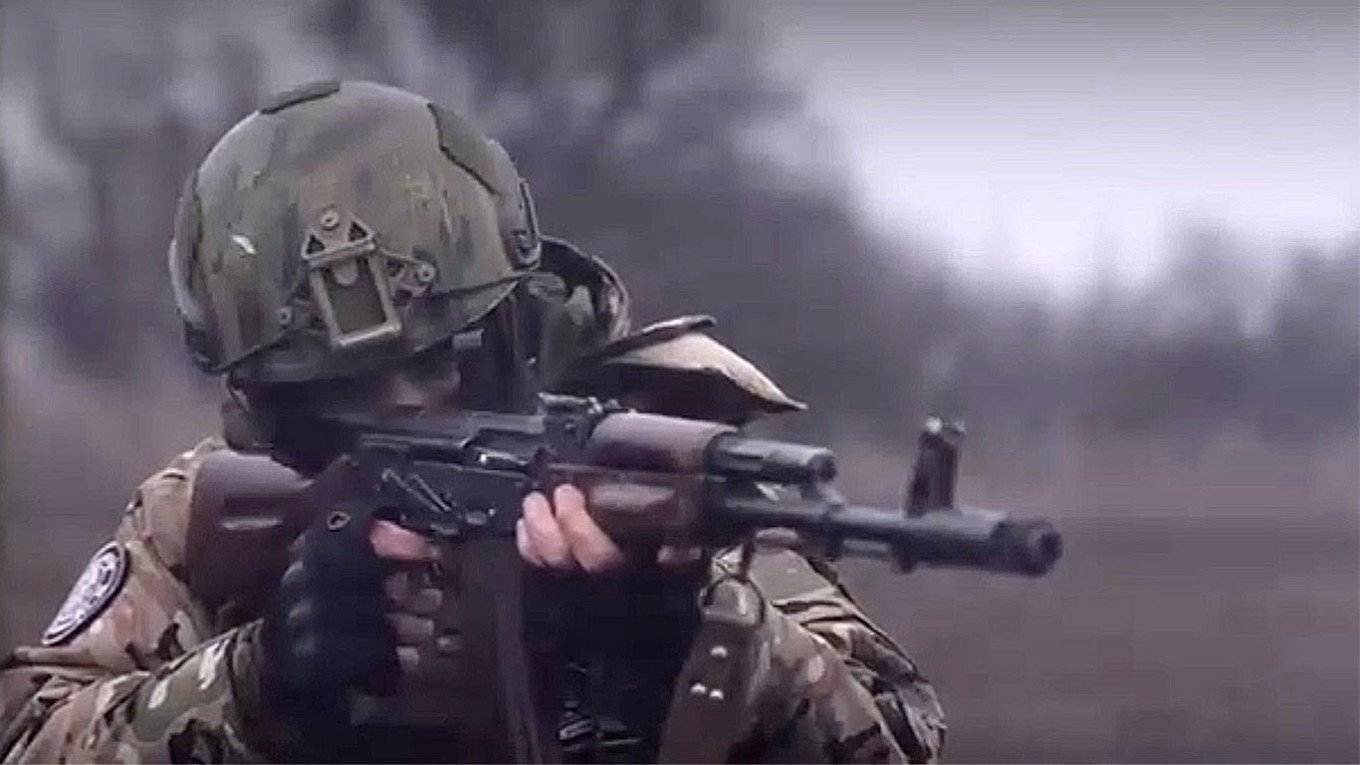
This summer, Russian authorities also started reining in mercenaries by making them sign contracts with the Defense Ministry. This process accelerated after the death of the Wagner Group’s leadership in a plane crash.
The many Wagner fighters recruited from prisons were assigned to the Storm-Z penal units upon signing a contract.
Two events signaled the full legalization of penal military service and the corresponding amnesties.
On Nov. 3, lawmakers passed a law elaborating on the “special military registration” first introduced in June.
The law explained the process in detail: it’s now possible to register convicts without notifying them or having them undergo medical or psychological examination.
Yet it still failed to address the promises of freedom usually made to inmates upon recruitment.
It turned out these promises were true, which we know thanks to a murder.
Vladislav Kanius from Siberia’s Kemerovo region had been serving a 17-year prison sentence for the 2020 murder of his 23-year-old girlfriend Vera Pekhteleva.
This summer, Pekhteleva’s parents realized their daughter’s killer was free after they hadn’t heard updates from prosecutors in a long time. In response to their persistent inquiries, the government published his pardon document — the first official proof that enlisted convicts receive a pardon after their service.
A sporadic occurrence at the beginning of the year, penal military service is now a widespread practice.
Social media groups and channels dedicated to searching for missing soldiers, such as “Don’t wait for me from Ukraine,” are full of posts made by relatives of the recruited convicts.
The exact number of convicts currently serving in the Russian Armed Forces is not clear. But according to Justice Ministry statistics, the country’s prison population has plummeted from 700,000 inmates 10 years ago to just 266,000 in October 2023.
“We have numbers coming from the [penal] colonies from beyond the Urals: [the military] recruit from 150 to 300 people in just one visit. They even demonstrate some ‘progressive’ approaches — we have letters from women’s colonies as well,” the representative of Rus’ Sidyashaya told The Moscow Times.
“You can promise anything to a future war casualty: freedom, a job, or even war hero status. Given the treatment convicts get in society when released, they’ll agree to anything.”
A Message from The Moscow Times:
Dear readers,
We are facing unprecedented challenges. Russia's Prosecutor General's Office has designated The Moscow Times as an "undesirable" organization, criminalizing our work and putting our staff at risk of prosecution. This follows our earlier unjust labeling as a "foreign agent."
These actions are direct attempts to silence independent journalism in Russia. The authorities claim our work "discredits the decisions of the Russian leadership." We see things differently: we strive to provide accurate, unbiased reporting on Russia.
We, the journalists of The Moscow Times, refuse to be silenced. But to continue our work, we need your help.
Your support, no matter how small, makes a world of difference. If you can, please support us monthly starting from just $2. It's quick to set up, and every contribution makes a significant impact.
By supporting The Moscow Times, you're defending open, independent journalism in the face of repression. Thank you for standing with us.
Remind me later.


